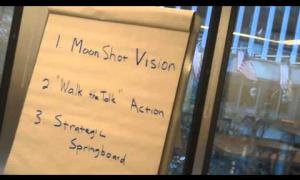On media: presidential precedent
February 22, 2017
President Kennedy said "no president should fear public scrutiny of his program." Nixon VP Agnew called the press "nattering nabobs of negativism."
White House Watch. There’s been a lot of talk about a free press lately, and it’s worth studying what previous presidents have said about the media, “No president should fear public scrutiny of his program,” said President John F. Kennedy to a meeting of the American Newspaper Association on April 27, 1961.
For from that scrutiny comes understanding; and from that understanding comes support or opposition. And both are necessary. (…) Without debate, without criticism, no Administration and no country can succeed- and no republic can survive. That is why the Athenian law-maker Solon decreed it a crime for any citizen to shrink from controversy. And that is why our press was protected by the First Amendment—the only business in America specifically protected by the Constitution—not primarily to amuse and entertain, not to emphasize the trivial and the sentimental, not to simply "give the public what it wants"—but to inform, to arouse, to reflect, to state our dangers and our opportunities, to indicate our crises and our choices, to lead, mold, educate and sometimes even anger public opinion.
(Hat tip to speechwriter Caroline Neuenfeld, who dug this up from her home base in Bonn, Germany.)
Of course, it must also be recalled here that President Nixon’s Vice President Spiro Agnew once read the words of his young speechwriter William Safire and called the press “nattering nabobs of negativism,” and “hopeless, hysterical hypochondriacs of history.” —DM



